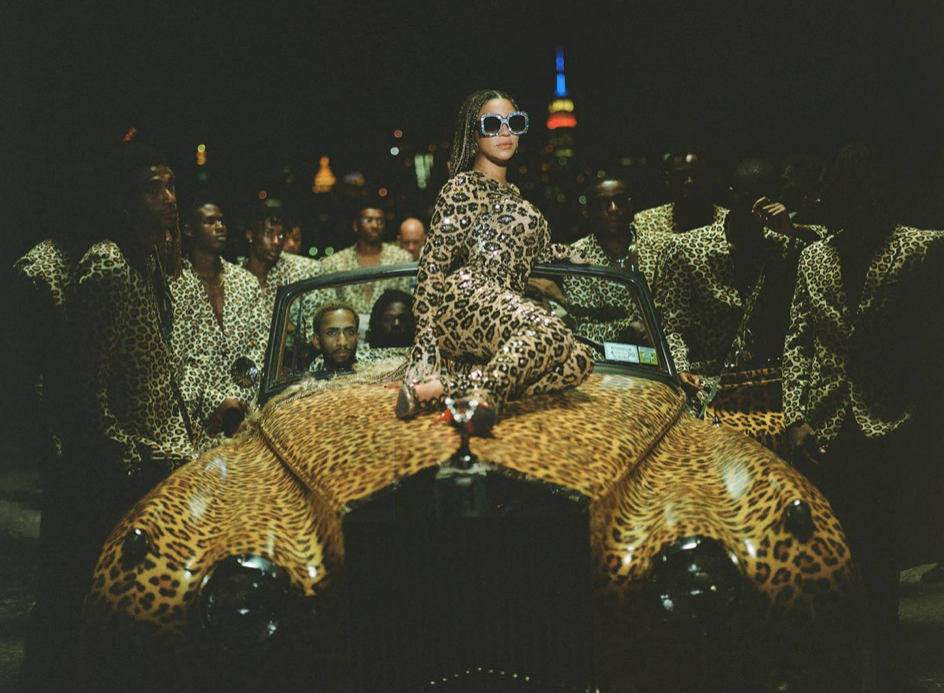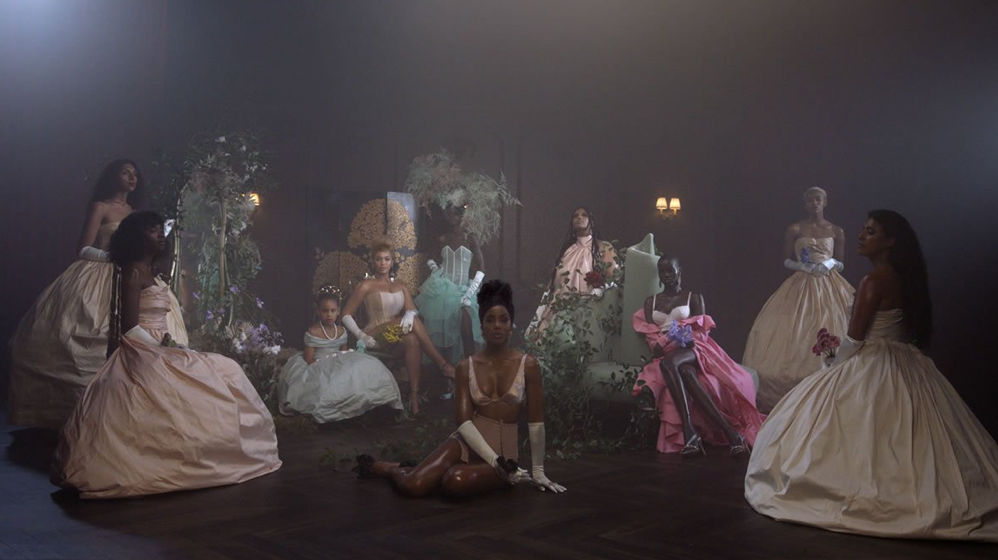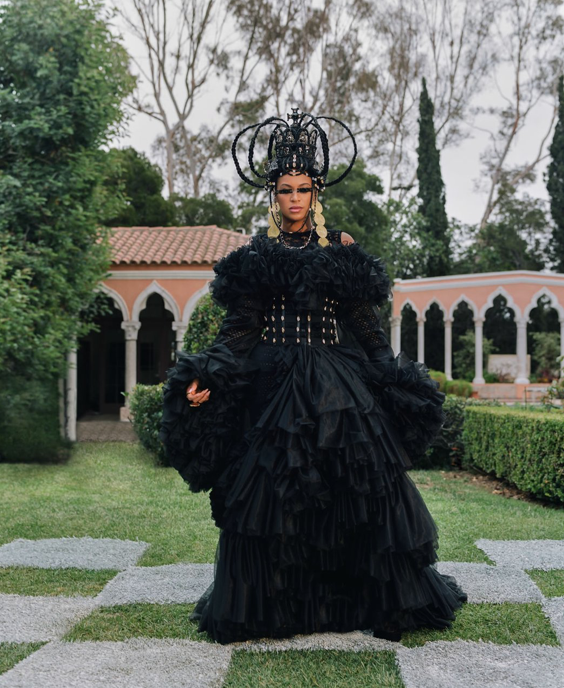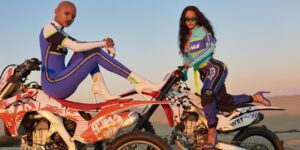
Photo: Parkwood Entertainment, via Beyoncé.com
Beyoncé released her new music film Black Is King to streaming platform Disney+ over the weekend. The June 31 release was set to Pacific Standard Time, which left many East Coast fans waiting until 3 in the morning to consume the highly anticipated project. Still, the wait was worth it. #BlackIsKing trended on Twitter for several hours after the release and was supported by a feature that animated the like button so, when clicked, a graphic of the two lions from The Gift album cover appeared.
Black Is King enlisted stars Kelly Rowland, Lupita Nyongo, Naomi Campbell, and Adut Akech for the “Brown Skin Girl” music video and husband Jay Z for the “Mood 4 Eva” video, a song he prominently rapped on. The project was filmed on location in Nigeria, Ghana, South Africa, Belgium, the U.S., and the U.K.

Photo: Parkwood Entertainment, via Beyoncé.com
The project comes from a lineage of groundbreaking Beyoncé visual albums that date back to, at least, her 2013 self-titled album Beyoncé and later the 2016 Lemonade. At a running time of 85 minutes, Beyoncé delivered an ode to Africa and the diaspora through an array of stunning visuals guided by her 2019 soundtrack album The Lion King: The Gift and influenced by African and diasporic folklore. The project reimagines the story of The Lion King through a young African child (Folajomi Akinmurele) who exists, grows and learns in the film’s interludes.
‘Music video’ doesn’t feel like the right categorization of the song’s visuals. They are expressive visual feats that, in many ways, collectively build upon each other to tell a multi-layered story. “Sonic cinema,” a designation Beyoncé bestowed upon “The Gift,” seems a much more apt way of describing what the visuals accomplish, but perhaps there is no perfect word to describe what each visual accomplished.
https://www.youtube.com/watch?time_continue=2&v=69MO7yU0d70&feature=emb_title
In its interludes, which drive the film forward, Beyoncé’s voice can be heard musing about one’s connection to home, family and future which can be interpreted as a dual metaphor relating to the search for identity faced by both “The Lion King” character Simba and by the diaspora. Somali-British poet Warsan Shire, who previously collaborated with Beyoncé on Lemonade, was again called upon to contribute as a writer.
Beyoncé’s stated intention in making the film was to “shift the global perception of the word Black, which has always meant inspiration and love and strength and beauty to [her.]”

The film was dedicated to the artist’s son, Sir Carter, with an onus for him to be strong and brave, while being sensitive and kind.
Powered by WPeMatico


